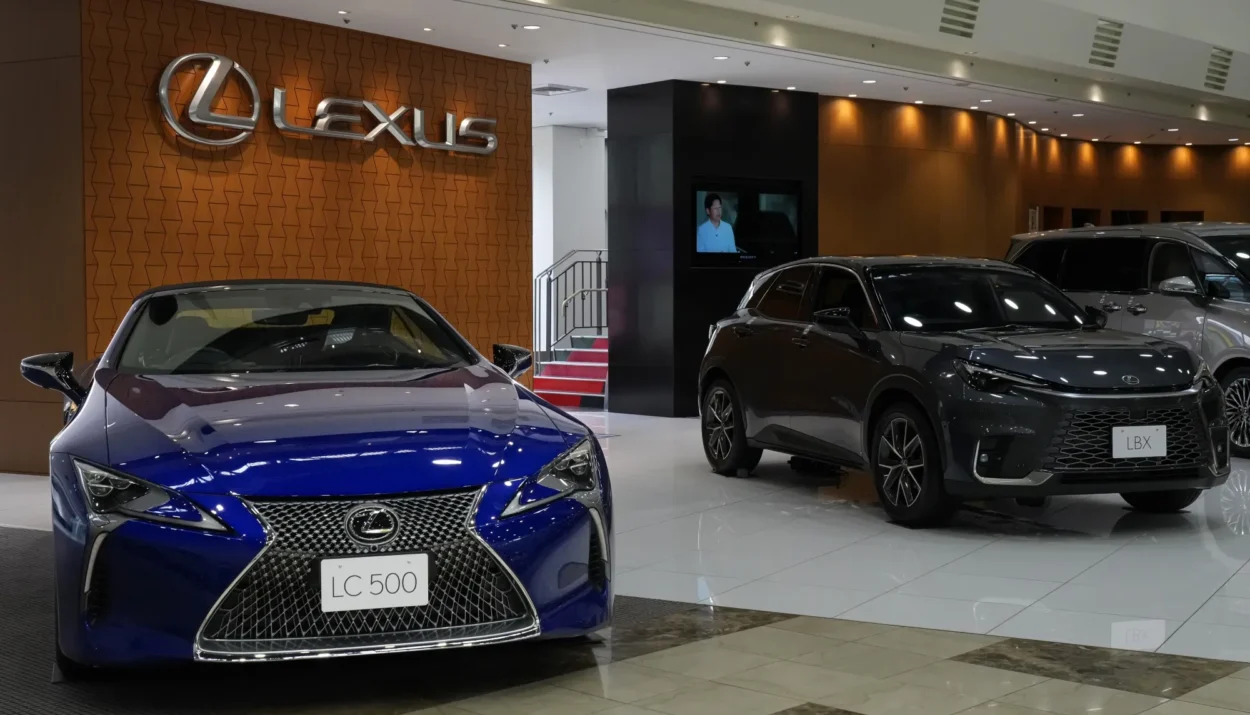Who makes Lexus? The luxury car brand Lexus is a division of Toyota Motor Corporation, one of the world’s largest automakers. Known for its commitment to reliability, luxury, and innovative design, Lexus has earned a reputation as a top-tier automobile manufacturer since its debut. Established to compete with leading luxury brands like Mercedes-Benz and BMW, Lexus has become a global symbol of quality and comfort.
How Toyota Created Its Luxury Brand
Lexus was created in response to Toyota’s desire to enter the luxury automobile market in the late 1980s. Toyota, a brand already known for producing reliable and economical vehicles, sought to expand into the premium car segment to compete with European luxury giants.
- The Beginning: In 1983, Toyota’s chairman at the time, Eiji Toyoda, challenged a group of executives to build a world-class luxury car that could rival the best in the world. This project, internally known as the “F1” project, was the foundation of Lexus. After years of development, Toyota introduced the first Lexus model, the Lexus LS 400, in 1989.
- Launch and Reception: The Lexus LS 400 made its debut at the North American International Auto Show in Detroit in 1989. The car was a technological marvel, featuring a powerful yet refined V8 engine, rear-wheel drive, and a plush, quiet cabin. It was priced lower than many of its competitors, making it a popular choice among consumers looking for luxury without the European price tag.
- Global Expansion: Following the success of the LS 400, Lexus quickly expanded its lineup to include other models, such as the ES, RX, and GX. The brand’s emphasis on customer satisfaction, reliability, and high-quality craftsmanship helped it gain a strong foothold in the luxury market, particularly in North America.

Who Makes Lexus Cars?
Although Lexus operates as a separate luxury brand, Toyota Motor Corporation is the parent company that makes Lexus vehicles. Toyota’s global reputation for reliability and innovation extends to Lexus, ensuring that each car upholds the highest manufacturing standards.
- Manufacturing Plants: Lexus vehicles are primarily produced in Japan, with some production facilities located in the U.S. and Canada. The main production hub is the Tahara plant in Japan, which is renowned for its high levels of precision and quality control. This factory is known for using advanced robotics alongside skilled human workers to create vehicles that meet Lexus’s strict standards.
- Takumi Craftsmen: One of the unique features of Lexus production is the use of Takumi craftsmen. These master artisans, with decades of experience, oversee the production process and ensure that every detail is flawless. From hand-stitching the leather to fine-tuning the engine, the Takumi craftsmen are integral to Lexus’s reputation for luxury and quality.
- Innovative Technology: Lexus integrates cutting-edge technology into its manufacturing processes. Toyota’s Toyota Production System (TPS), which focuses on lean manufacturing and minimizing waste, is applied to Lexus production, ensuring efficiency and sustainability while maintaining high-quality output.

Lexus’s Key Models and Innovation
Lexus is renowned for its diverse range of luxury vehicles, spanning sedans, SUVs, hybrids, and high-performance models. The brand consistently leads the market with innovative designs, advanced technology, and environmentally conscious solutions.
- Lexus LS: The flagship sedan that started it all, the Lexus LS, continues to be a benchmark for luxury sedans worldwide. It features cutting-edge technology, hybrid options, and a luxurious interior that appeals to the most discerning drivers.
- Lexus RX: One of the most popular models in the Lexus lineup, the RX is a luxury crossover SUV that combines comfort, performance, and practicality. The RX was one of the first luxury SUVs to offer a hybrid version, reflecting Lexus’s commitment to sustainability.
- Lexus LC: The Lexus LC coupe is a blend of performance and luxury, featuring a powerful V8 engine or hybrid option, stunning design, and advanced driving technology. It’s positioned as a halo car, representing the pinnacle of Lexus’s engineering prowess.
- Hybrid Innovation: Lexus has been a pioneer in hybrid technology, offering a wide range of hybrid models long before many of its competitors. The company’s Lexus Hybrid Drive system delivers both fuel efficiency and performance, appealing to environmentally conscious luxury buyers. The hybrid lineup includes models like the Lexus RX 450h and the Lexus ES 300h, showcasing the brand’s commitment to sustainability without compromising luxury.
- See some of the locations where different Lexus models – some not available in the United States – are manufactured today:

- Tahara, Japan — LS, GS, IS, GX, RX, and NX
- Toyota City, Japan — ES, LX, LFA, and LC
- Kitakyushu, Japan — CT, HS, and RX
- Miyawaka, Japan — ES, IS, RX, NX, and UX
- Susono, Japan — SC
- Cambridge, Ontario, Canada — RX and RXh
- Georgetown, Kentucky, USA — ES
Global Impact and Expansion of Lexus
Today, Lexus operates in over 90 countries and is one of the top luxury car brands in the world. The brand has particularly strong markets in North America, Europe, and Asia, but its reputation for quality has made it a global contender in the luxury car space.
- U.S. Market: Lexus’s biggest market is the United States, where it competes with other luxury brands such as Mercedes-Benz, BMW, and Audi. The combination of performance, reliability, and customer service has made Lexus a favourite among American luxury car buyers.
- Sustainability Focus: In response to global demand for eco-friendly vehicles, Lexus has expanded its lineup of hybrid models and plans to introduce fully electric vehicles (EVs) soon. The brand’s focus on sustainability aligns with Toyota’s broader goal of reducing carbon emissions and promoting alternative energy vehicles.
- Future Growth: As part of Toyota’s larger strategy, Lexus is poised for growth in the electric vehicle market. The upcoming Lexus LF-Z Electrified concept showcases the future of the brand, with advanced electric drive technology, cutting-edge design, and an emphasis on sustainability.
Sources:










